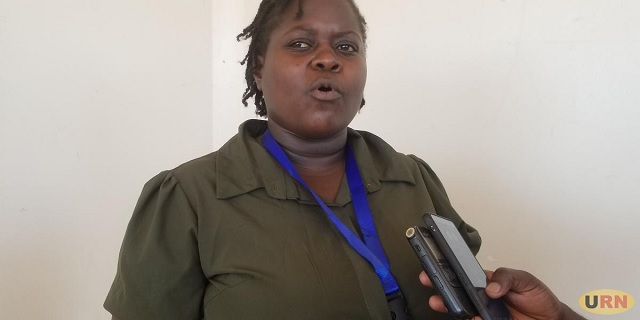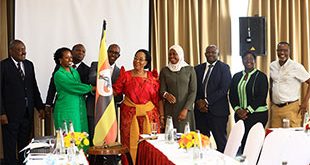
JINJA, UGANDA | THE INDEPENDENT | Uganda Women Network- UWONET has raised the need for gender sensitivity during electoral processes to ignite increased women’s participation in elective politics.
During their ongoing clinics geared towards ensuring women’s participation in elective politics within the Busoga sub-region, UWONET argues that balancing up civic spaces will steer women’s participation as their safety is fully guaranteed during and after the different electoral processes.
The civic clinics being held in Jinja City have since attracted 80 women leaders from the districts of Namutumba and Kamuli, respectively.
This initiative has since attracted the attention of women leaders at the different local council levels, most of whom fault inconsistencies in gender laws as their major deterrent from participating in directly elected positions.
Miriam Namugosa, the deputy speaker of Namutumba district, says that the affirmative positions have tremendously contributed to increased women’s participation in politics; however, underlying widespread misinformation within the public domain restricts directly elected positions to men.
Namugosa says that, rather than only organizing elections and holding radio talk shows during electoral processes, district returning officers ought to champion civic-related engagements geared towards sensitizing communities on the importance of equitable political participation of all genders.
This, she says, will set on well to encourage active participation of women using political spaces to champion gender equality and children’s rights at all levels.
Maliza Namulinda, a member of civil society organizations, says that, apart from limited civic awareness, some women shun elective politics over harassment by security organizations.
Namulinda says that security organs alongside the electoral commission should prioritize the rights of women during the electoral processes, as this triggers their participation at all levels.
Namulinda says that, much as the stakes seem high during electoral processes, with different security entities deployed to enforce set laws geared towards ensuring peaceful electoral processes, gender sensitivity should be prioritized across the board.
Namulinda says that this will create a level ground for the women to effectively compete in the electoral processes, even in the seemingly male-dominated directly elective positions, without fear of being embarrassed by security agencies.
Sharon Ntono, the female youth councilor for Bugulumbya sub-county in Kamuli district, says that the violence exhibited during electoral processes is a clear indication of the already existing sexual and gender based violence (SGBV) in many homes across the country.
Ntono says that women face several barriers, from at times being abused as girls all through to growing up in communities with judgmental stances against women in all spheres of life.
Ntono hopes that, with collective efforts from home environments, places of worship, and village councils within the seemingly micro community setups, the gender sensitivity will, over time, become a shared reality for all.
UWONET’s programs coordinator, Julian Naluwoza, says that there are underlying reports of husbands denying their wives from joining elective politics over undisclosed reasons or at times belonging to different political parties.
Naluwoza says that such women endure physical assaults, which is overly frustrating them from exercising their constitutional right to participate in electoral processes at all levels.
Naluwoza notes that such situations call for police readiness to fully investigate SGBV cases, frustrating women from effectively participating in the electoral processes, a move she hopes to foster protection of women at all times.
Naluwoza says that some women are exposed to episodes of violence, which deters them from voting for their leaders of choice, which she describes as a move aimed at suppressing divergent voices.
Naluwoza is, however, hopeful that the women’s civic clinics will empower them to agitate for fair treatment during the electoral processes, as the same is their constitutional right.
Busoga East Police Spokesperson, Michael Kafayo, says that, safety of women during electoral processes is their priority, noting that all police divisions are equipped with standby police personnel deployed to handle election-related offenses where gender sensitivity is highly observed.
*****
URN
 The Independent Uganda: You get the Truth we Pay the Price
The Independent Uganda: You get the Truth we Pay the Price



